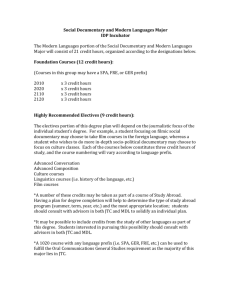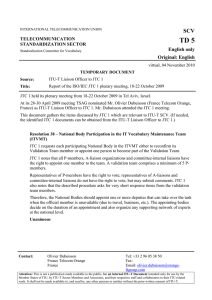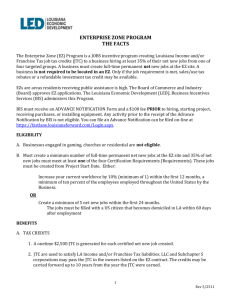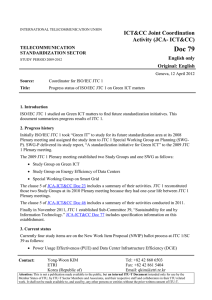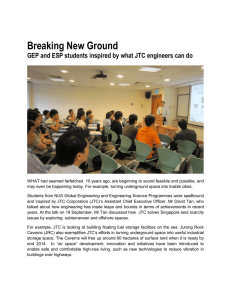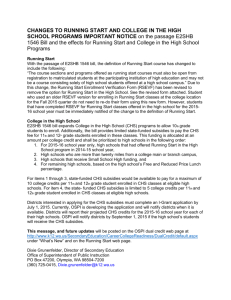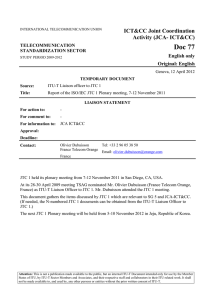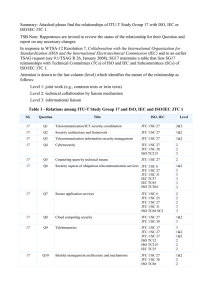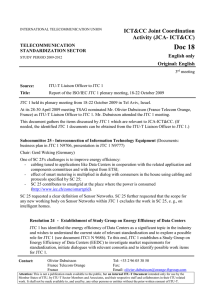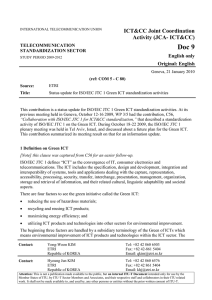Joint Transfer Council Dual Credit Task Force Washington state
advertisement
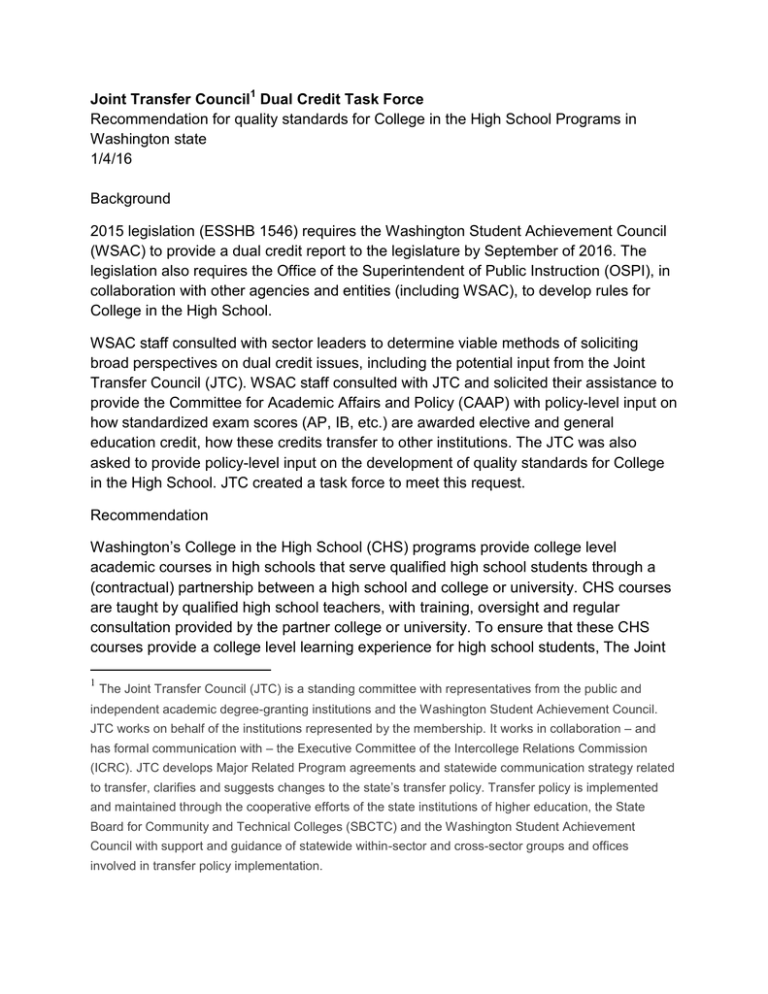
Joint Transfer Council1 Dual Credit Task Force Recommendation for quality standards for College in the High School Programs in Washington state 1/4/16 Background 2015 legislation (ESSHB 1546) requires the Washington Student Achievement Council (WSAC) to provide a dual credit report to the legislature by September of 2016. The legislation also requires the Office of the Superintendent of Public Instruction (OSPI), in collaboration with other agencies and entities (including WSAC), to develop rules for College in the High School. WSAC staff consulted with sector leaders to determine viable methods of soliciting broad perspectives on dual credit issues, including the potential input from the Joint Transfer Council (JTC). WSAC staff consulted with JTC and solicited their assistance to provide the Committee for Academic Affairs and Policy (CAAP) with policy-level input on how standardized exam scores (AP, IB, etc.) are awarded elective and general education credit, how these credits transfer to other institutions. The JTC was also asked to provide policy-level input on the development of quality standards for College in the High School. JTC created a task force to meet this request. Recommendation Washington’s College in the High School (CHS) programs provide college level academic courses in high schools that serve qualified high school students through a (contractual) partnership between a high school and college or university. CHS courses are taught by qualified high school teachers, with training, oversight and regular consultation provided by the partner college or university. To ensure that these CHS courses provide a college level learning experience for high school students, The Joint 1 The Joint Transfer Council (JTC) is a standing committee with representatives from the public and independent academic degree-granting institutions and the Washington Student Achievement Council. JTC works on behalf of the institutions represented by the membership. It works in collaboration – and has formal communication with – the Executive Committee of the Intercollege Relations Commission (ICRC). JTC develops Major Related Program agreements and statewide communication strategy related to transfer, clarifies and suggests changes to the state’s transfer policy. Transfer policy is implemented and maintained through the cooperative efforts of the state institutions of higher education, the State Board for Community and Technical Colleges (SBCTC) and the Washington Student Achievement Council with support and guidance of statewide within-sector and cross-sector groups and offices involved in transfer policy implementation. Transfer Council proposes that CHS programs in Washington meet the following National Alliance of Concurrent Enrollment Partnerships (NACEP) standards (the full text of the standards may be found at http://nacep.org/docs/standards/NACEPStandards-2011.pdf ): Curriculum 1, 2, 3 Faculty 1, 2, 4 Student 1, 2, 3 Assessment 1, 2 Evaluation 1, 4 Programs will show that they meet these standards in one of two ways. 1) Receiving accreditation from the National Alliance of Concurrent Enrollment Partnerships (NACEP) for the current year of enrollment; 2) Providing an annual report consisting of evidence that the required standards have been met during the current year of enrollment. A state committee of higher education representatives and an OSPI representative will review CHS annual reports. Evidence required for each standard may be found at: http://nacep.org/docs/standards/NACEP-Standards-2011-and-RequiredEvidence.pdf .

